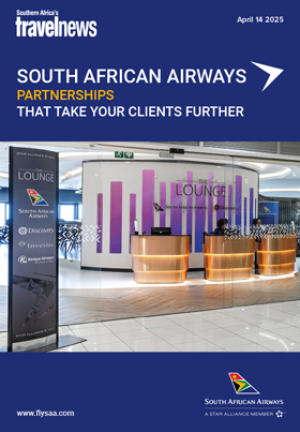TRAVEL agencies are struggling to fill senior consulting roles because of the industry’s dwindling talent pool. But they could attract more interest if they advertised positions that are flexible or remote, come with a contract, and allow for a more generous share of profits and commissions for workers.
More than 100 travel agents who participated in a recent poll by Travel News have identified these as some of the most appealing employment terms that could persuade them to remain in or return to a job in travel. The most highly rated condition was flexible and/or remote working.
The struggle to fill senior roles has worsened as businesses have scaled back up from the pandemic. Megan Vorster, People and Culture GM at Flight Centre Travel Group South Africa told Travel News recently that the industry’s talent pool was even more limited this year because more businesses had ramped up their recruitment drives and it had become clear that many individuals who were retrenched during the COVID-19 pandemic had found alternative roles (Talent shortage a looming crisis).
Travel News’s poll showed that 34% of agents would return to work if they had flexible or remote working opportunities; 18% wanted job security or a fixed contract; and 16% said they would be enticed back by the promise of earning more commission.
Being offered the choice of salaried employment or an ITC option didn’t feature highly as a reason to return to the office – only 7% voted for that option.
Access to educationals also only got 7% of the vote as a reason to work in a travel agency; 6% of respondents would be attracted by an in-house system that could help combat point-of-sale issues and give agents more airline inventory to sell – a sticky point, post-COVID; 3% wanted networking opportunities like industry events, roadshows and product launches, and only 2% said they could be enticed into a travel agency if it gave them access to learning opportunities.
Commenting on the results, Bianca Mazur, Flight Centre SA GM, said: “It is no surprise that flexible and/or remote working came out tops in the poll. COVID has certainly thrown the rulebook on traditional workplaces out the window and seen companies learn to adapt to an ever-changing workforce.”
Mazur said that even though a degree of flexibility was important, specific roles and business needs had specific requirements. “If you work in a retail environment, as an example, flexibility in terms of remote work may not be feasible as you are customer-facing. However, it is important to retain the expertise we have in our business and we are investigating what a flexible working model would look like in our retail business.
“We are very fortunate to have a number of brands that support our employees on their career path with us. Travel experts may look for more flexibility as they become parents or have growing families, and their natural progression could be to move into our independent brands. We may have staff who actively seek career advancement, which means they work on development plans that see them shift into a support role, which presently offers a hybrid working model. On the flip side, we also see many of our people move back to retail operations as they miss the in-person interactions with a team and our customers,” Mazur added.
She said with the rising cost of living it would be important for people to earn well and to be as financially secure as possible. “This reflects in the poll results, as job security/fixed contract (18%) and more commission (16%) polled second and third,” she said.
In a further reflection of this trend, Flight Centre amended its wage model in 2021, from a high commission structure to a model that is based on the Total Transaction Value (TTV). “By changing our wage model, our travel experts are able to prosper and earn well while ultimately still being in control of their full earning potential. The retention and prosperity of our people is extremely important to us,” said Mazur.















